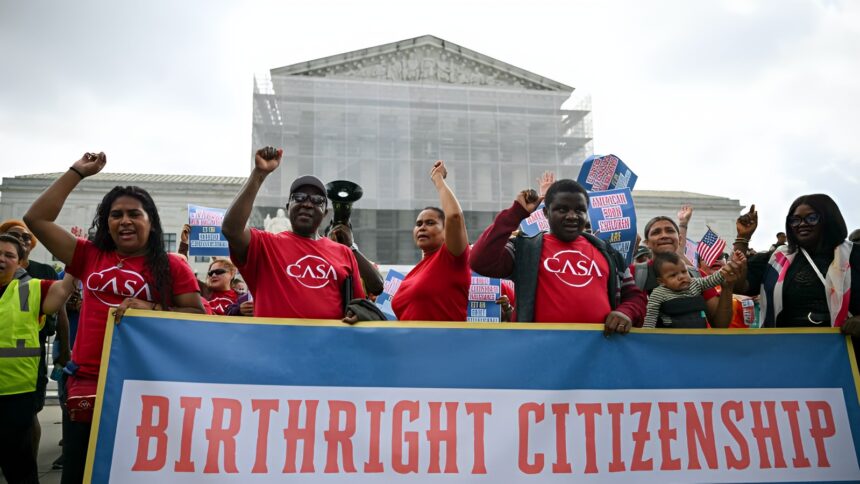The administration of United States President Donald Trump has released new guidance detailing how it intends to enforce the birthright citizenship order, which seeks to end automatic citizenship for certain children born on U.S. soil.
In a memo issued by the U.S. Citizenship and Immigration Services (USCIS), the administration announces preparations for implementing the executive order, despite ongoing federal court blocks.
Pan-Atlantic Kompass reports that the birthright citizenship order was signed on the first day of Trump’s second term in January 2025.
The order aims to deny citizenship to children born to undocumented immigrants or those on temporary visas, such as student or work visas.
This policy marks a departure from the 14th Amendment’s longstanding guarantee of citizenship to anyone born on U.S. soil, regardless of parental immigration status.
Following the development, civil organisations dragged Trump’s administration to court to stall the border.
While the birthright citizenship order is currently on hold due to a recent federal court ruling, the USCIS, the State Department, and the Social Security Administration (SSA) have outlined the administration’s intended approach to implementing the policy if the executive order is permitted to go into effect.
The memo revealed that the order would prevent federal agencies from issuing citizenship documents to children born after February 19, 2025, whose mothers are undocumented or on temporary visas and whose fathers are neither U.S. citizens nor lawful permanent residents.
Exceptions would apply to children of refugees, asylees, and green card holders.
Below is an overview of how the new policy is intended to be implemented as stated in the memo;
How It Currently Works
• A child’s U.S. birth certificate is considered sufficient proof of U.S. citizenship, and parents can present it to the government to get a passport, SSN, and federal benefits for their child.
• Parents don’t need to prove their own citizenship or immigration status when applying for these documents or benefits on their U.S.-born child’s behalf (except in cases involving foreign diplomats, who aren’t considered under U.S. jurisdiction).
How It Would Work Under the Proposed Plan
• For any child born in the U.S. after the executive order’s effective date, their U.S. birth certificate alone is not considered sufficient proof of U.S. citizenship, and parents will need to provide additional documentation to obtain a passport, SSN, or federal benefits for their child.
• At least one parent would need to prove their own citizenship or eligible immigration status when applying for these documents or benefits on their U.S.-born child’s behalf.
• Federal agencies would verify parental status during or after birth registration.
• Federal documents recognizing U.S. citizenship are not issued to children whose parents lack qualifying status.





